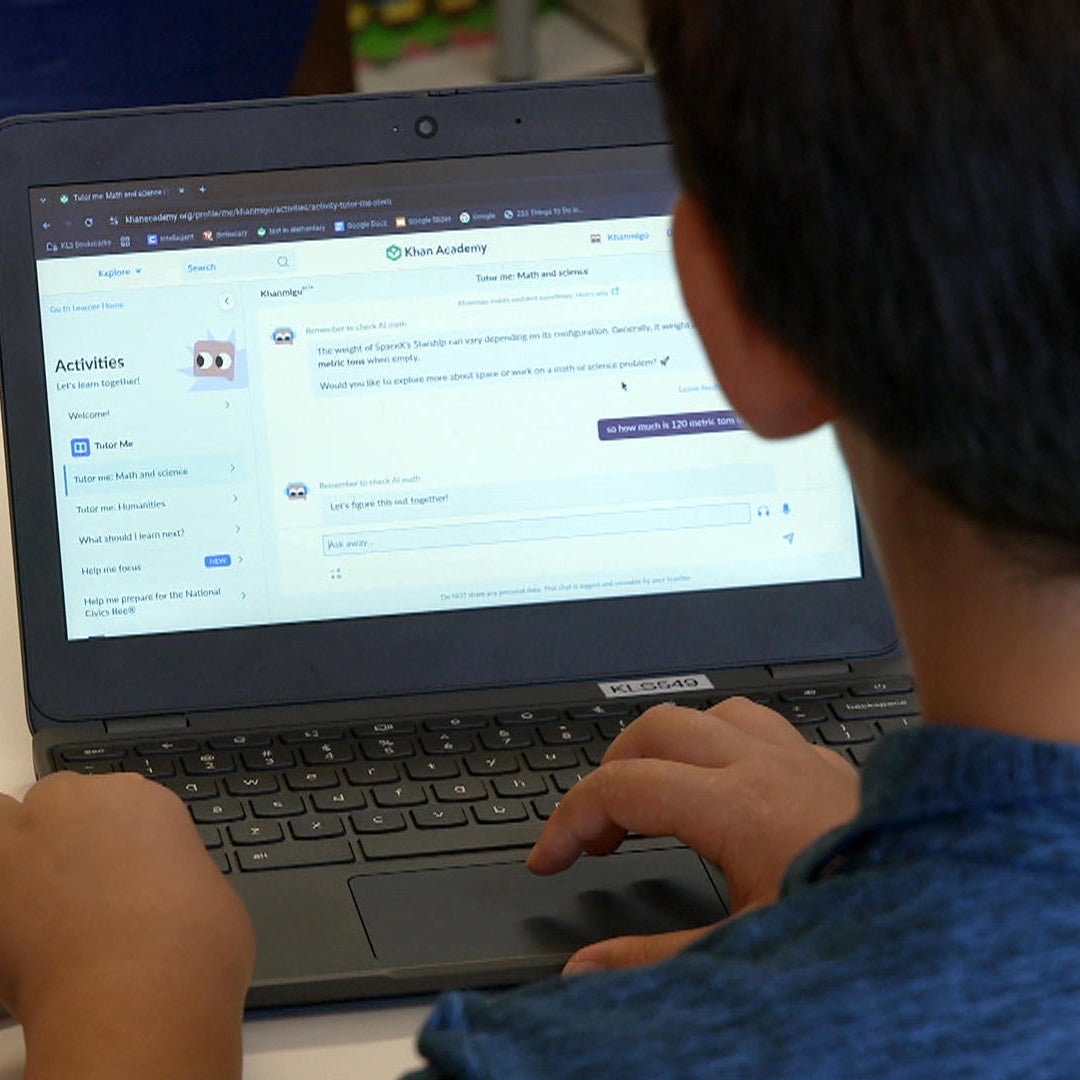The Rise of AI in Education: A New Era for Learning
In an early morning in Hobart, Indiana, a high school student named Abigail found herself engaged with what could be the next big tech innovation in education. This tool is called Khanmigo, an AI platform developed by the educational nonprofit Khan Academy. Designed to emulate the Socratic method, it encourages students to think critically by responding to their questions with thought-provoking inquiries.
Abigail shared her experience with 60 Minutes correspondent Anderson Cooper, explaining how she asked Khanmigo for three examples of acids. After receiving several examples, the AI listed different types of acid found in everyday beverages and then posed a follow-up question: “Can you think of any household items that might contain acid?” This interactive approach helps students build their understanding through self-discovery.
Sal Khan, the founder of Khan Academy, first encountered the underlying technology behind OpenAI’s Chat GPT in 2022. While he was initially concerned about its potential misuse, such as helping students cheat on essays, he also recognized its immense potential as an intelligent tutor with built-in “guardrails.”
Khanmigo is currently being piloted in 266 school districts across the United States, covering grades three through 12. Teachers use it to create lesson plans, review essays, and plan classroom activities, while students use it to get help with homework, refine their writing, or work on practice problems.
Cooper expressed his interest in the AI tutor from both a journalistic and personal perspective. With two young children, he sees the potential benefits of an AI tutor that could assist his son with math and science homework in the future.
One unique feature of Khanmigo for teachers is a usage tool that allows them to see students’ dialogues with the AI and an activity log. When a student uses Khanmigo to ask a question or draft an essay, teachers can track the actions taken, the time they occurred, and the duration spent on each assignment.
“This provides a window for adults to supervise children through their homework and workflow in a way that hasn’t existed before,” Cooper noted. However, some students feel this level of oversight may be intrusive.
At Hobart High School, students have expressed concerns about the data collected by Khanmigo. One student mentioned, “Everything you type in it, it sends it to your teacher… and I think that’s something really scary for students.”
Peggy Buffington, the superintendent of Hobart High School’s district, believes this kind of oversight can save lives. She suggested adding a safety net feature to detect if a student is struggling emotionally, potentially identifying cases of suicide ideation.
In response to this feedback, Khan Academy developed a feature to detect if a student is talking about harming themselves or others and notify a teacher immediately. If necessary, a mental health counselor can intervene to provide support.
Cooper raised concerns about privacy with Khan, who assured him that Khan Academy will never sell data collected by Khanmigo and will only use it internally to improve the platform.
Despite its potential, Khanmigo is still a work in progress. Students at Hobart High School have reported that it occasionally makes mistakes, but Khan remains optimistic about its continued improvement.
As Cooper noted, “There’s no putting the genie back in the bottle in this… I don’t think there’s any doubt that this is here already.” He emphasized the importance of tech companies implementing ethical guardrails and parents staying involved in their children’s learning.
For Cooper, the potential benefits of AI tutors are clear, especially as a father of two young boys. An AI tutor that is available at home and in school could offer incredible learning opportunities for students.
The video above was originally published on December 8, 2024. It was produced by Will Croxton and edited by Sean Kelly.







